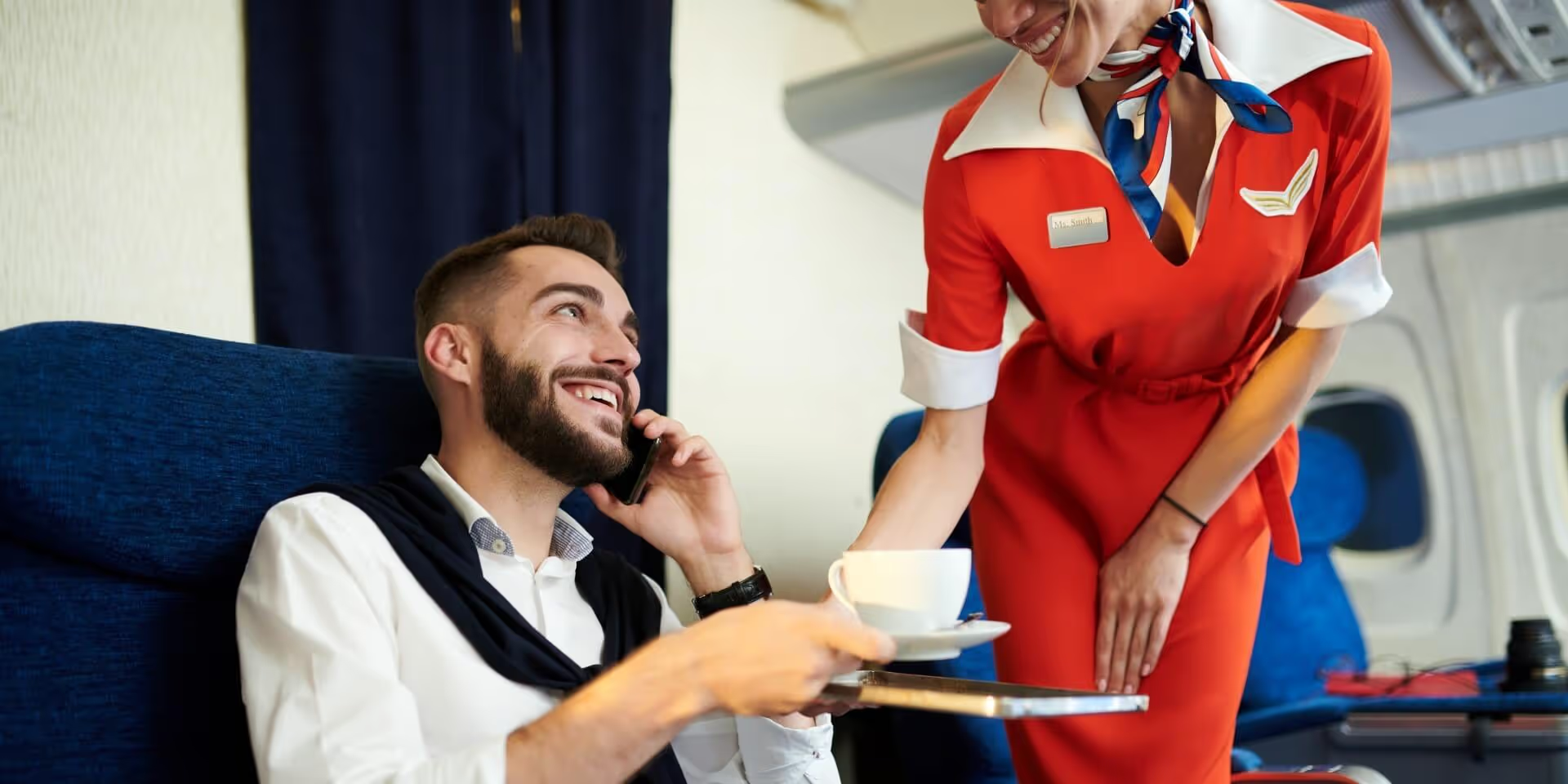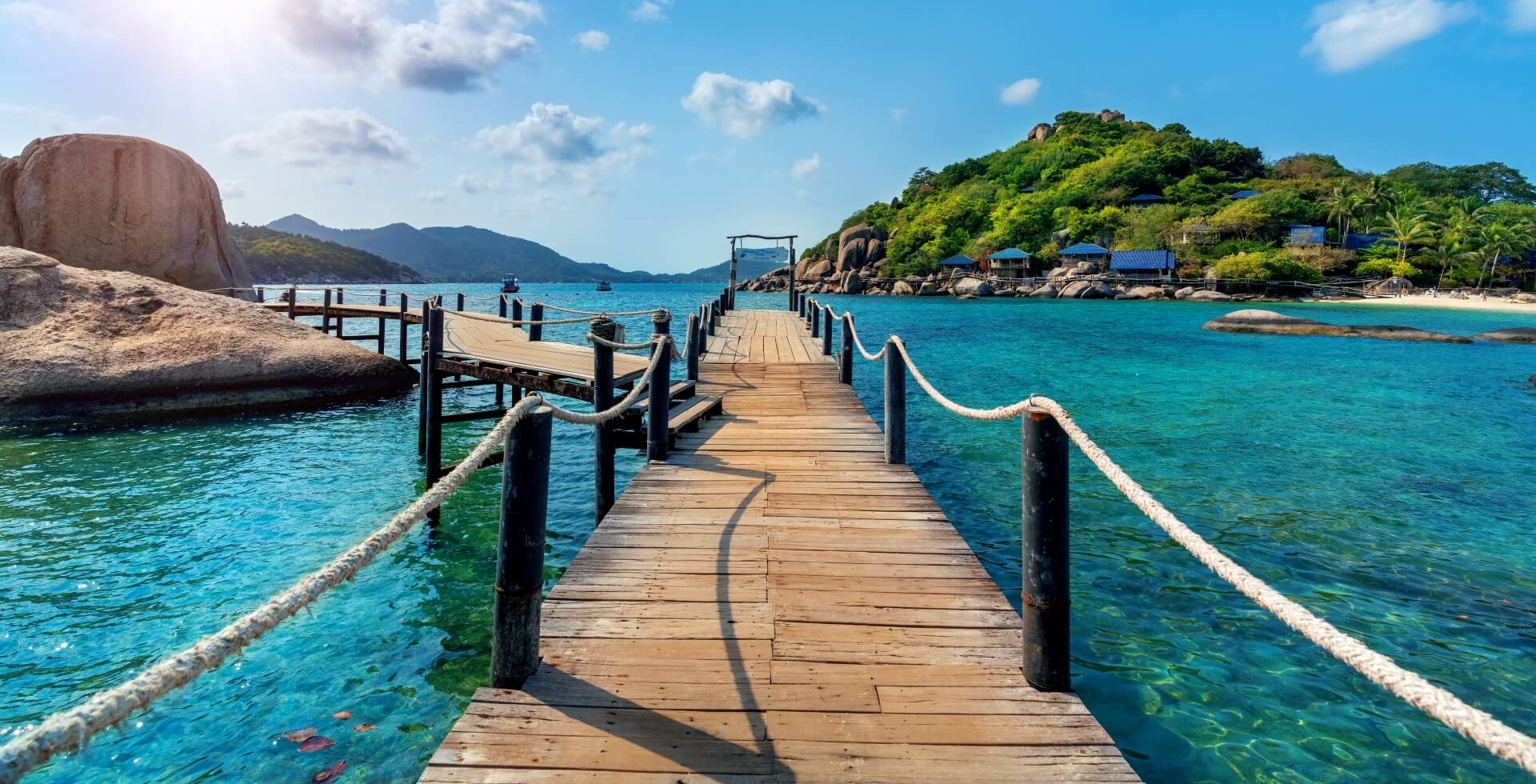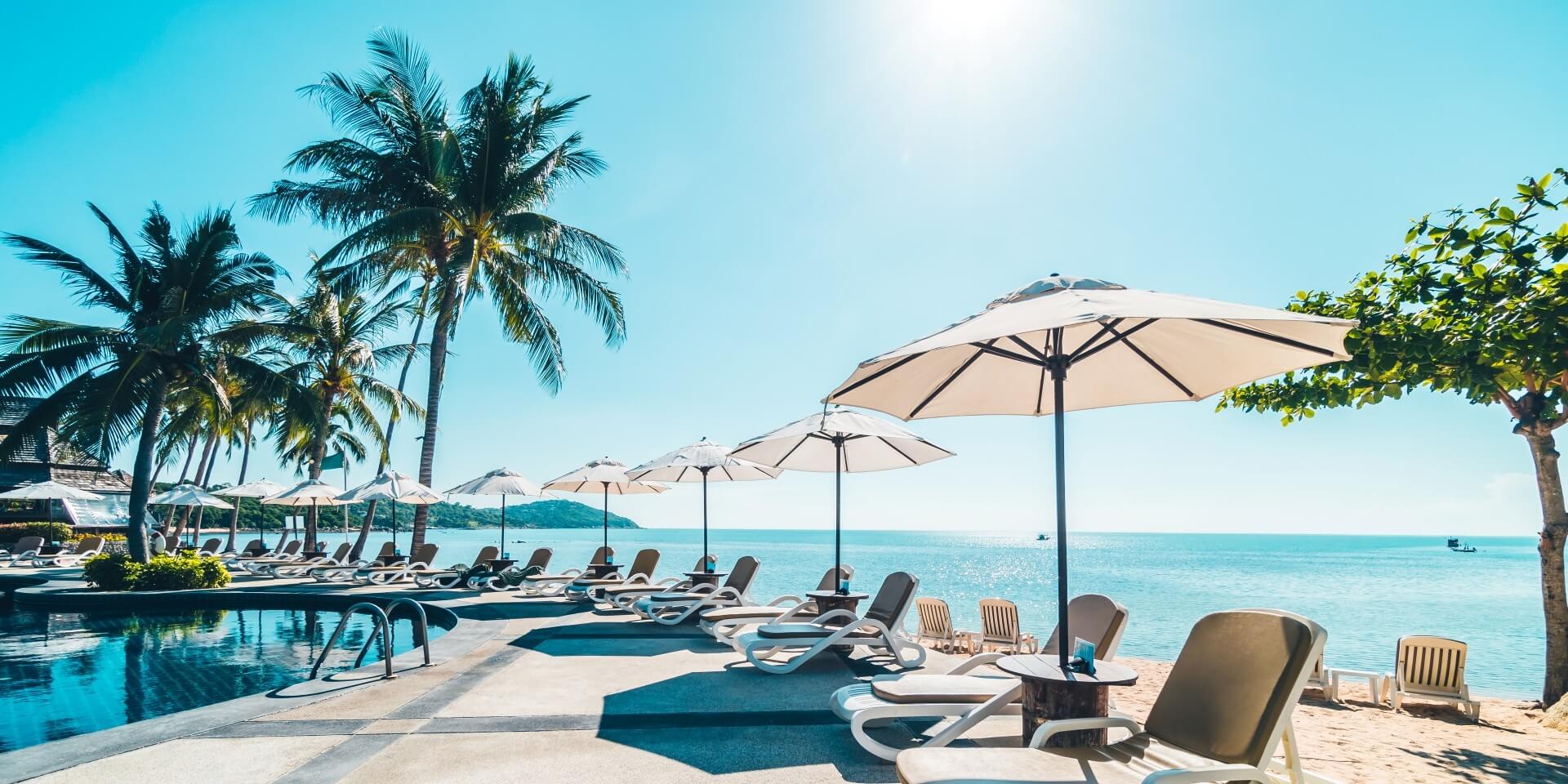In order to succeed as a travel and leisure brand, businesses need to find ways to differentiate themselves and provide exceptional customer experiences. One powerful strategy to achieve this is through personalisation.
With data being so easy to find, business travel marketing must analyse and use this information to deliver tailored experiences. This forms a key way to differentiate businesses.
Data-driven personalisation enables travel companies to understand their clients’ preferences, anticipate their needs, and provide solutions that align with their individual requirements.
The shift towards personalisation in business travel
Today, personalisation is not a luxury, it's an expectation. This shift is particularly evident in the travel industry, where the one-size-fits-all approach is quickly becoming outdated. Business travellers, in particular, are increasingly seeking personalised services that cater to their specific needs and preferences.
The rise of personalisation in business travel can be attributed to several factors. Firstly, the modern business traveller is more informed and tech-savvy than ever before. With access to a wealth of information at their fingertips, they expect travel experiences that are seamless, efficient, and tailored to their unique preferences. Secondly, the competitive landscape of the travel industry has pushed companies to differentiate themselves through personalised travel recommendations. By providing customised experiences, companies can not only meet the expectations of their clients but also foster loyalty and repeat business.
How data drives personalisation in business travel
Data-driven insights enable travel companies to understand the unique preferences and behaviours of their clients, allowing them to deliver customised experiences that meet individual needs.
Types of data collected
To create personalised experiences, travel companies collect a wide range of data from various sources. This data includes booking history, travel preferences, and past destinations, which provide insights into a traveller's habits and preferences. Additionally, data on behaviour on travel websites and apps, such as search history and click patterns, can help identify what a traveller is interested in and what they value in their travel experiences.
For instance, if a business traveller frequently books flights with a specific airline or prefers staying at certain hotels, this information can be used to offer travel recommendations that align with their preferences. Similarly, data on preferred travel times, seating arrangements, and in-flight services can be leveraged to provide a more personalised travel experience.
Data sources
The data used for business travel personalisation is gathered from a variety of sources, including Customer Relationship Management (CRM) systems, loyalty programs, and travel management software. CRM systems store valuable information about clients, such as their contact details, preferences, and past interactions, which can be used to personalise communications and offers. Loyalty programs, on the other hand, provide insights into a traveller's preferences and behaviours, enabling companies to offer rewards and benefits that resonate with their clients.
Travel management software is another crucial source of data, as it tracks all aspects of a traveller's journey, from booking to post-trip feedback. This data can be analysed to identify patterns and trends, which can then be used to offer personalised travel recommendations and services.
Implementing personalisation strategies
Once data is collected and analysed, it can be used to implement various personalisation strategies:
Tailored recommendations
Personalised hotel suggestions can make a significant difference for business travellers. By analysing past preferences, travel companies can recommend hotels that align with a traveller’s preferred location, price range, and amenities. For example, if a traveller frequently stays at boutique hotels in central business districts, the system can automatically suggest similar properties that meet these criteria for future trips.
Personalisation also extends to flight recommendations, where data can be used to offer tailored options based on preferred departure and arrival times, airlines, and fare classes. This approach helps travellers find flights that fit their schedules and loyalty preferences. Additionally, personalisation can consider specific in-flight services, such as meal preferences or seating arrangements, ensuring a comfortable journey tailored to individual needs.
Business travellers often have specific needs and interests when choosing destinations. By analysing a traveller’s business requirements, personal interests, and past travel history, companies can suggest destinations that best match these factors. For example, a frequent traveller to technology conferences might receive recommendations for destinations known for tech events, aligning travel plans with business goals and personal preferences.

Customised itineraries
In addition to tailored recommendations, customised itineraries are another powerful tool for personalising the business travel experience. Business travellers often have tight schedules, and a well-planned itinerary can make a significant difference in their overall experience. By using data on a traveller's past trips and preferences, companies can create itineraries that align with their schedules and needs.
For instance, if a business traveller has a preference for certain airlines or prefers to fly at specific times of the day, this information can be used to create an itinerary that minimises travel stress and maximises productivity. Additionally, personalised itineraries can include recommendations for local restaurants, attractions, and activities that align with the traveller's interests, making their trip more enjoyable and fulfilling.
Personalised communication
Personalised communication is another key aspect of delivering a tailored business travel experience. By using data to understand a traveller's preferences and behaviours, companies can send relevant offers, updates, and reminders via email, mobile apps, or SMS. For example, a travel company might send a business traveller a personalised offer for an upgraded hotel room or a discount on a preferred airline, based on their past booking history.
Personalised communication can also include reminders about upcoming trips, suggestions for packing based on the destination's weather, or alerts about potential travel disruptions.
Benefits of personalisation for business travellers
Improved efficiency
One of the primary benefits of business travel personalisation is improved efficiency. By offering tailored recommendations and customised itineraries, companies can streamline the booking process and make it easier for business travellers to make decisions. This not only saves time but also reduces the stress associated with planning and organising travel.
Additionally, personalised communication ensures that travellers receive relevant information at the right time, further enhancing efficiency.
Elevated experience
Personalised business travel experiences are designed to cater to the individual needs and preferences of each traveller. This means that every aspect of the trip, from the choice of hotel to the in-flight services, is tailored to the traveller's unique requirements. By providing personalised amenities and services, companies can create a more comfortable and enjoyable travel experience.
Increased satisfaction
Ultimately, personalisation leads to increased satisfaction among business travellers. When travellers feel that their needs and preferences are understood and catered to, they are more likely to have a positive experience and develop a sense of loyalty towards the travel company.
Challenges and considerations
While personalisation offers significant benefits, it also presents certain challenges:
Data privacy and security
- Safeguarding personal data: Protecting customer data from unauthorised access and breaches is crucial.
- Compliance with regulations: Adhering to data privacy regulations, such as GDPR is essential.
Balancing personalisation and privacy
- Avoid intrusiveness: Ensure that business travel personalisation efforts do not become overly intrusive or invasive.
- Respect user preferences: Allow users to control the level of personalisation they receive.
Future trends in personalisation for business travel
The future of personalisation in business travel is set to be driven by emerging technologies and evolving traveller expectations.
Emerging technologies
AI, machine learning, and advanced analytics will play pivotal roles in delivering hyper-personalised experiences, from tailored travel itineraries to predictive recommendations based on past behaviours.

Evolving traveller expectations
As business travellers increasingly demand more customised and flexible solutions, personalisation will adapt by offering seamless integration across platforms, real-time updates, and bespoke services that cater to individual preferences. These advancements will ensure that business travel becomes more efficient, enjoyable, and aligned with the unique needs of each traveller.
Plan your brand around personalisation
To successfully implement personalisation strategies, travel companies must first align their brand values and messaging with a customer-first approach. This involves creating a brand identity that emphasises tailored experiences and demonstrates a commitment to understanding and meeting individual traveller needs. Every touchpoint, from website design to marketing campaigns, should reflect this focus on personalisation, ensuring customers see your brand as one that truly understands and caters to their unique preferences.
Additionally, consider integrating personalisation into your brand's core messaging. Highlight how your services offer customised travel solutions, whether through tailored recommendations or unique experiences. This approach not only differentiates your brand from competitors but also builds stronger connections with customers who value a personalised experience. By planning your brand around personalisation, travel companies can create a cohesive, customer-centric image that attracts and retains business travellers seeking a tailored approach to their travel needs.
How travel companies can get started with personalisation
Travel companies can take several steps to implement personalisation strategies:
Investing in data analytics tools
- Data collection and analysis: Invest in tools to gather, store, and analyse customer data effectively.
- Advanced analytics: Use advanced analytics techniques to extract meaningful insights from data.
Building a customer-centric strategy
- Understanding customer needs: Develop a deep understanding of customer preferences and behaviours.
- Customer-centric culture: Foster a culture that prioritises customer satisfaction and Personalisation.
Training and development
- Staff training: Ensure that staff are equipped with the knowledge and skills to implement Personalisation effectively.
- Continuous learning: Encourage ongoing training and development to stay updated on the latest trends and technologies.
Final thoughts
By catering to the unique needs and preferences of each traveller, businesses can enhance satisfaction, boost productivity, and foster loyalty. The integration of advanced technologies like AI and machine learning has made it possible to deliver bespoke experiences at scale, ensuring that every journey is efficient, comfortable, and aligned with the traveller’s objectives.
As traveller expectations continue to evolve, the ability to adapt and offer personalised solutions will be key to staying ahead in the market. Data-driven business travel products are vital for travel businesses. Companies that leverage data to create customised experiences for their clients not only improve the overall travel experience but also gain valuable insights that can inform future strategies. Ultimately, investing in personalisation is an investment in both employee well-being and organisational success, making it a critical element of modern business travel management.
Start personalising your customer experience today
At Boost, we work with travel and leisure brands to help them create brand strategies that reflect their customer-centric approach. Get in touch with us today to find out how we can help you.




